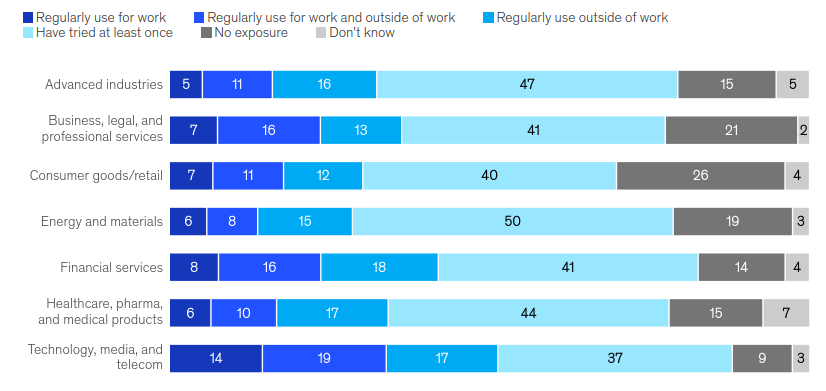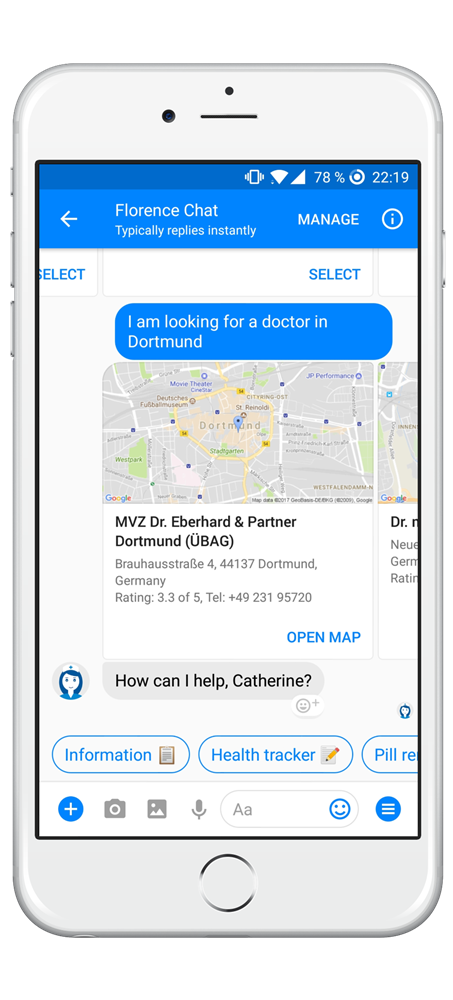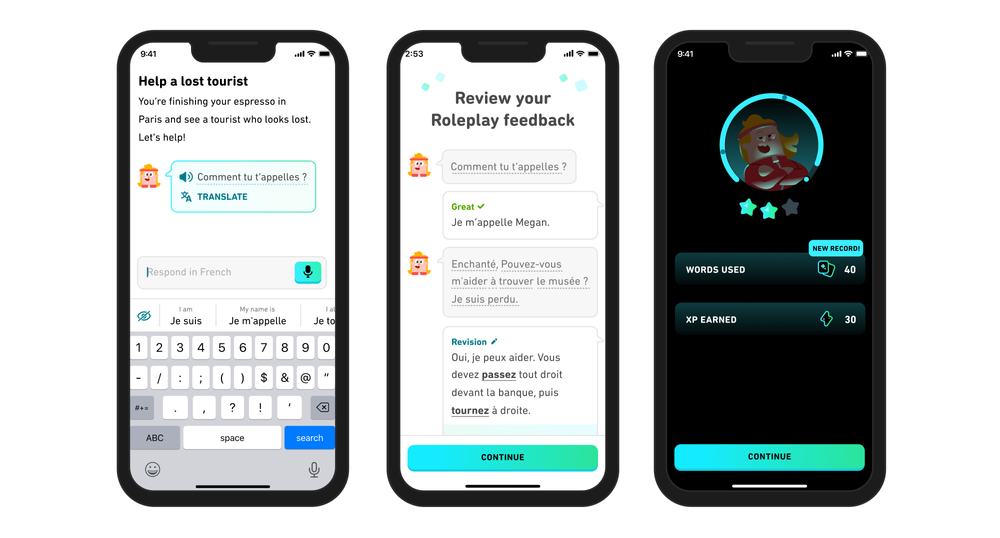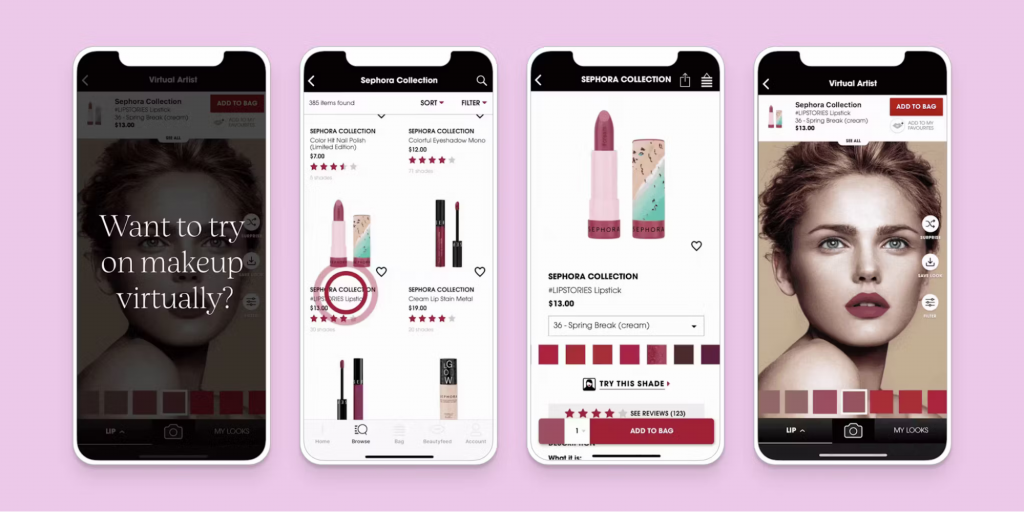Artificial intelligence has brought many significant innovations lately. Generative AI (GenAI) chatbots are at the forefront of this revolution as they don't require special skills, are easy to access, and offer sophisticated human-like interactions. Examples include IBM Watson Assistant, Copilot, Gemini, and ChatGPT, which everyone talks so much about.
Self-supervision combined with massive data and computing power enables generalizable and adaptable representations called foundation models. These large-scale neural networks can be trained and adapted to various tasks. They, for example, power such AI apps as ChatGPT. Any business can take a large pre-trained AI model fed with trustworthy data specific to a given industry and powered with the company's knowledge to tune it to a particular range of use cases. It opens almost endless business possibilities since you can not only use what popular GenAI chatbot developers offer but also adopt an AI solution tailored to your business needs. And businesses use this opportunity in one way or another. According to McKinsey’s The state of AI in 2023, one third of all respondents use GenAI regularly for at least one function:

Today, we'll look at how artificial intelligence and, specifically, GenAI chatbots can be used in different industries, from healthcare to E-commerce.
Customer Service
GenAI chatbots are changing customer service by managing inquiries, offering solutions to common issues, and ensuring round-the-clock support. Their adoption can enhance overall satisfaction and operational efficiency.
ChatGPT is making a significant impact by enhancing the efficiency and quality of interactions between customers and companies. For instance, GenAI chatbots can be integrated into a company's customer service platform to respond instantly to frequently asked questions, reducing wait times and freeing human agents to handle more complex issues. Octopus Energy is an energy supply company from the UK that relies on ChatGPT, which is integrated into their emailing system and can solve clients' problems and answer their questions. As the company says, the artificial intelligence system can handle up to 44% of customer inquiries and free up many employees to focus on other tasks. However, the AI chatbot still relies on human supervision. Employees, for example, need to overview the drafts of personalized emails generated by this GenAI system before sending them.
Read Also What’s the Internet of Behavior and How It Can Help to Keep Your Customers Happy
Bank of America's Erica is an AI virtual assistant that offers a wide range of banking services. Artificial intelligence can assist users with checking balances, transferring money, paying bills, finding transactions, providing spending insights, and even offering credit score information.

The most common uses of Erica are monitoring subscriptions and bills and analyzing spending habits. Since its launch in 2018, this GenAI chatbot has surpassed 2 billion interactions with clients.
Healthcare
In the healthcare industry, GenAI chatbots are used for patient triage, scheduling appointments, sending medication reminders, and providing essential medical information, improving patient care and operational efficiency. According to a survey by IDC, the most common use cases for AI chatbots and digital assistants in healthcare in the US are:
Checking symptoms (32.7%);
Scheduling appointments (30.8%);
Customer service on health plan websites (27.3%);
Managing medications (25.1%);
Customer service on health system/hospital websites (22.5%).
Gemini, specifically through its healthcare-focused iteration known as Med-Gemini, can be helpful in the medical field. Med-Gemini uses advanced AI capabilities to analyze and interpret complex medical data, providing healthcare professionals with valuable insights that improve patient outcomes. For example, this GenAI chatbot can assist in diagnosing diseases by evaluating medical images and patient records, offering precision that surpasses traditional methods. Moreover, artificial intelligence can streamline the workflow in hospitals by optimizing resource allocation and reducing administrative burdens, ultimately lowering healthcare costs and increasing the overall efficiency of medical services. In the MedQA US Medical Licensing Exam (USMLE)-style question benchmark, Med-Gemini achieves an unmatched performance of 91.1% accuracy.
Read Also These 7 Healthcare Systems Can Bring Your Business Luck and Prosperity
Florence AI Health Assistant is designed to help patients manage their health and wellness. This AI chatbot can remind users to take their medications, track their health metrics (e.g., user’s body weight, mood, or period), provide information about medications and side effects, and offer health tips and advice.

Artificial intelligence can tell users more about their disease or help them find a required location, such as a doctor or a pharmacy. It helps improve medication adherence and patient compliance, provides personalized health management, and supports chronic disease management. For example, Florence’s GenAI chatbot achieved an accuracy rate of 78.6% in addressing nicotine replacement therapy (NRT) questions.
Buoy Health provides patients access to the GeanAI chatbot assistant to identify their symptoms and navigate to appropriate care. Artificial intelligence engages users in a conversation about their symptoms, uses machine learning algorithms to provide a preliminary assessment, and recommends next steps such as self-care, seeing a doctor, or going to the emergency room. Here, the GenAI chatbot helps reduce unnecessary emergency room visits, guides patients to the appropriate level of care, and empowers users with knowledge about their health conditions. Buoy Health developers have partnered with Boston Children's Hospital to refine and validate their pediatric product offering.
Education
Educational institutions can leverage GenAI chatbots for personalized tutoring, answering student queries, and handling administrative tasks, thus enriching the learning experience and operational efficiency. According to the latest data, 30-40% of schools see the need for AI chatbots, artificial intelligence can save up to 40% of teachers' time, and 77% of students think positively about using GenAI chatbots for learning.
Duolingo AI Tutor. In 2023, the company released Duolingo Max, a new subscription plan that enables access to an advanced AI learning chatbot powered by ChatGPT 4. GenAI tutor creates a personalized language learning environment. It can adapt to individual learning paces and provides instant feedback, making the learning process more engaging and effective for students.
Roleplay and Explain My Answer are two major new features backed with artificial intelligence support. Roleplay provides students with opportunities to practice real-world conversations with the AI system. The GenAI chatbot is responsive and interactive. The company says its artificial intelligence model is so advanced that users won't get two similar conversations. The feedback, which relies on AI algorithms, can inform users of their accuracy and provide learning tips.

Explain My Answer, in turn, helps users who need clarification about the answers they give or make the same mistake over and over again. In this case, artificial intelligence can provide learners with a lesson regarding the answers they give.
Read Also The Test of Time: How Online Platforms Reshape Traditional Educational Assessments
Chegg is an educational technology company. In 2023, they announced the release of CheggMate, the new artificial intelligence companion. This GenAI solution provides personalized tutoring and homework help to students. The AI tutor can answer questions, provide feedback, and even generate new content. According to the company's study, 77% of Chegg customers were excited by AI chatbot support. However, 85% of students prefer artificial intelligence chatbots with human tutor support.
[blog-crm-3-cta]
E-commerce and Retail
E-commerce and retail platforms can utilize GenAI chatbots to offer personalized shopping experiences, manage clients' queries, and handle orders, enhancing customer satisfaction and operational efficiency. As 74.7% of consumers are more likely to purchase from more personalized brands again, AI chatbots are excellent tools to provide new growth points.
Microsoft's Copilot. As Copilot can enhance almost every Microsoft product with GenAI features, many companies use it to improve their business processes without switching from familiar software to a new platform. Regarding team scheduling, Copilot in Teams reduces the time required to create staff schedules based on projected foot traffic. For sales data analysis, Artificial intelligence in Excel can help analyze last quarter's sales data and identify trends, cutting down data analysis time. For better communication, companies can rely on Copilot in Outlook. It can assist in drafting responses to feedback about new product lines, for example. According to Target's experience, Copilot streamlines 15,000 work hours of administrative work weekly. It helps increase revenue by 10%, thanks to better merchandising efforts.
Sephora is probably the most innovative company in the makeup, skincare, fragrance, hair, and beauty products industry. It not only uses artificial intelligence to communicate with clients but also relies on augmented reality and facial recognition technology. Their Reservation Assistant is an advanced booking tool that was launched in 2016. It helps customers handle makeup appointments and, as the company says, has led to an 11% increase in booking rates. The GenAI chatbot has facial recognition and skin tone analysis systems working together.

They allow users to choose one of the thousands of the company’s products that’ll better suit them and precisely apply lipstick or eye shadow to the user’s face using AR. Artificial intelligence helps improve engagement, help in personalized marketing, and increase conversion rates.
Carrefour, a global retail giant, has introduced Hopla, a generative AI chatbot designed to improve the shopping experience. It uses natural language processing (NLP) to understand and respond to client's queries in real time. This GenAI chatbot also helps streamline various service tasks, from order tracking to handling returns and exchanges.
Walmart uses artificial intelligence to enhance its vendor negotiation processes. Their GenAI chatbot automates negotiations with suppliers, particularly those dealing with low-volume, niche products. Artificial intelligence enables Walmart to streamline and expedite the negotiation process, reducing the time from weeks or months to just a few days. The AI chatbot communicates Walmart's budget and priorities to suppliers, negotiating discounts, payment terms, and prices. Artificial intelligence ensures that all relevant information is automatically updated in Walmart's systems, facilitating better contract management and compliance.
Human Resources
In HR software, GenAI chatbots can manage recruitment processes, answer employee queries, and assist with onboarding, thereby improving efficiency and candidate experience. As the Gartner survey shows, 38% of HR leaders are piloting or experimenting with Generative AI technologies, with the top use cases being employee-facing chatbots (43%) and generating job descriptions/skills data (41%).
McDonald's McBot is an AI chatbot created to improve employees' onboarding and HR processes. McBot assists with various tasks, such as answering questions, coordinating information, and automating parts of the onboarding process for new hires. One of the significant advancements with McBot is its role in the McHire system and McDonald's onboarding procedure, which includes a comprehensive orientation, detailed employee handbook distribution, and assignment of work schedules. This GenAI chatbot has reduced McDonald's time-to-hire by nearly 65%, increasing the job application completion rate by 20%.
Unilever's U-Chat is a GenAI chatbot built to simplify the recruitment process. This tool assists potential candidates by providing real-time responses to their inquiries, guiding them through the various stages of the application process, and offering feedback. U-Chat is integrated into Unilever's recruitment strategy to handle repetitive tasks, which allows human recruiters to focus on more complex aspects of hiring. Artificial intelligence automates initial interactions and pre-screens candidates based on predefined criteria, which helps filter out unsuitable applicants early in the process. Also, this GenAI chatbot assists in scheduling interviews, a task that typically consumes a lot of administrative time.
Conclusion
As you can see, GenAI chatbots are applicable everywhere when you need to change communication between a business and its clients for the better. Whether you want to enhance the hiring and onboarding of new employees, find new customers, or improve the relationship with existing ones, you can always rely on artificial intelligence and its vast possibilities. However, remember that adding a pinch of human interaction is not just desirable but necessary since many people still depend on it. If you have an application without a GenAI chatbot and want to improve customer service or business indicators, you can implement and integrate one into your system.
